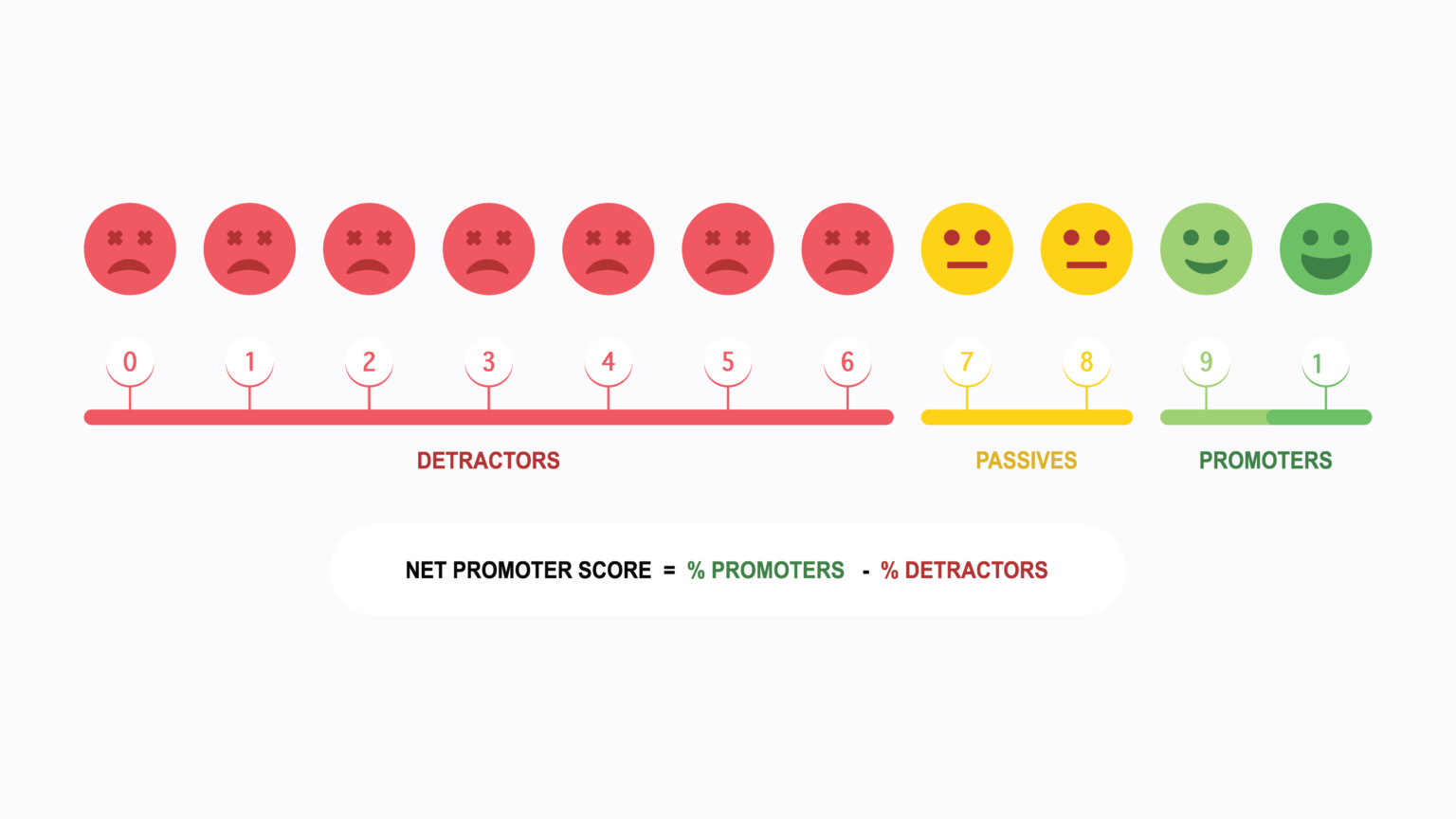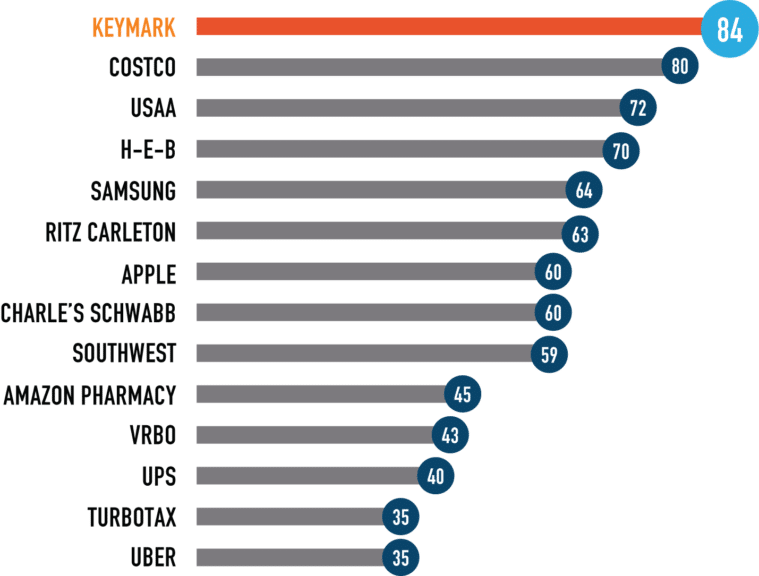What’s an NPS Score and Why Are We Freaking Out?
KeyMark just tallied our survey responses from the past year, and the results are in — KeyMark earned an 84 NPS score. Boom. Woah. We know, right?
Okay, let’s slow our roll, as they say. You might wonder, “What on earth is an NPS score?” And that’s a fair question, so let’s explain.
A Net Promoter Score, or NPS, is a method of measurement to gauge the value and loyalty of customer relationships and the growth (or decline) of positive customer sentiment over time. An NPS score is obtained by asking customers one simple question.
On a scale of 0-10, how likely are you to recommend (insert brand here)?
“So you got a “B”… so what?”
First of all, B’s get degrees, so jot that down. But secondly, and arguably more importantly, this isn’t your average school grading system. That’s because not all responses are weighted the same, and even a score of ‘8’ doesn’t help to improve your total.
In other words, this test is graded on a very big and very mean curve.
How Does Your Response Matter (Or Not Matter)?
NPS respondents are placed into three categories depending on where they’ve rated their product, service, or experiences on a scale of 0-10.
Detractors – Those who score 0 – 6. Detractors are the victims of a bad experience. A detractor deters future customers with bad reviews and can even demoralize employees.
Passives – Those who score 7 – 8. Passives are lukewarm about the product, service, or experience they’ve received. They will not harm customer potential but won’t make an effort to promote an organization. Passives are not long-term customers.
Promoters – Those who score 9 – 10. Promoters are ecstatic about their product, service, or experience. They will actively promote organizations in conversation, provide testimonials, and supercharge employees. Promoters indicate company growth.
Once collected, responses are calculated in a super-smart math equation and a value is assigned from -100 to 100. You read that right… that’s NEGATIVE 100.
To calculate the NPS score, simply take your percentage of promoters (P) minus your percentage of detractors (D). Passive responses are discarded because these individuals will neither support nor harm customer potential.

What is Considered a “Good” NPS Score
If you’ve done the math, a good NPS score is anything above zero, indicating there are more promoters than detractors. A score above 20 is great. Above 50 is better. And anything above 80 is considered in the top percentile.
It’s also important to consider how negative responses are much more freely given over positive or passive responses. That’s because we, as customers, want to be heard, and sometimes leaving that bad review is the quickest way to make that happen.
NPS Scoreboard
Now do you see why we’re so excited? If you’d like a bit more context or care to see where some of your favorite (or most despised) brands rank in an NPS duel of the fates, take a look at this NPS Scoreboard.







